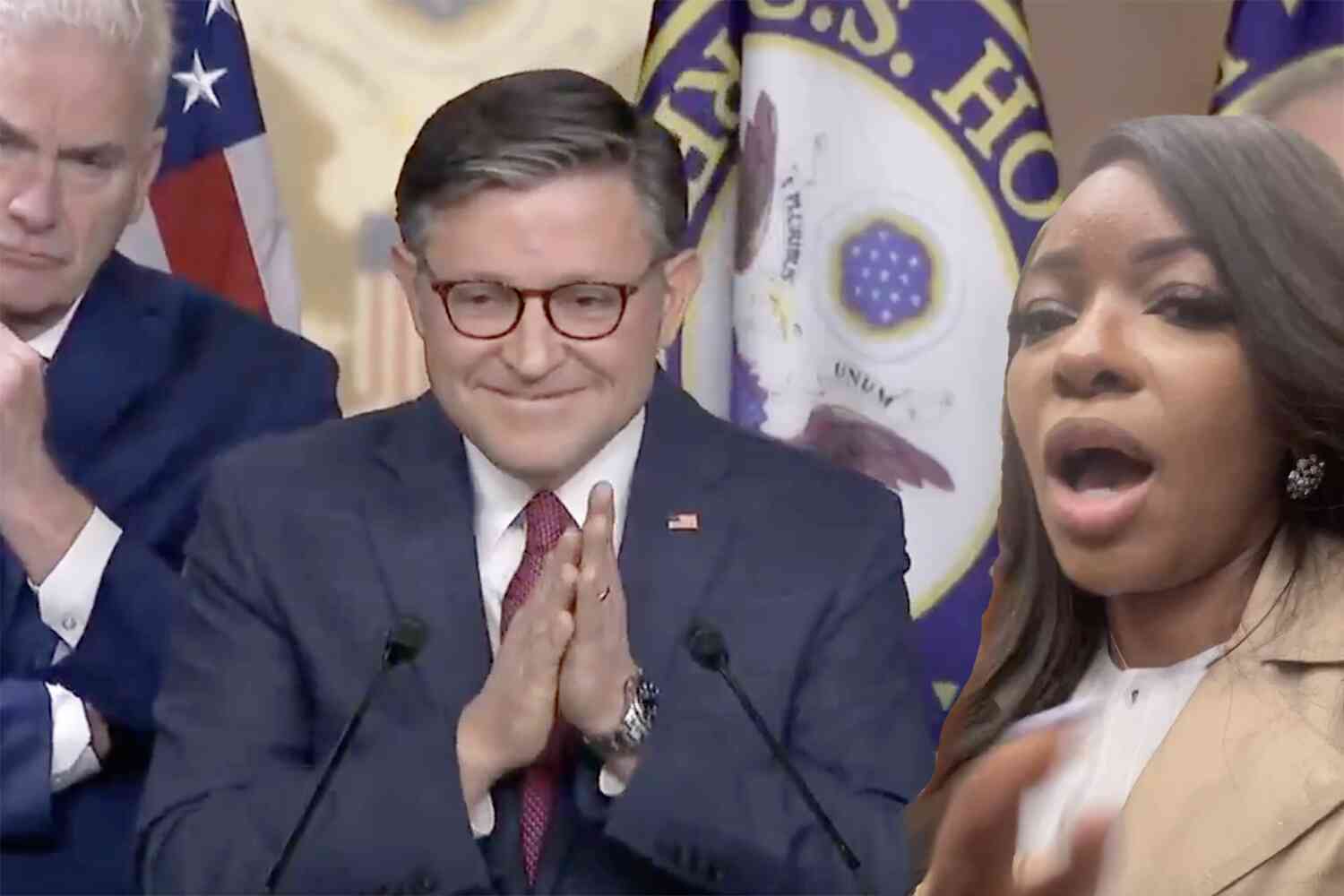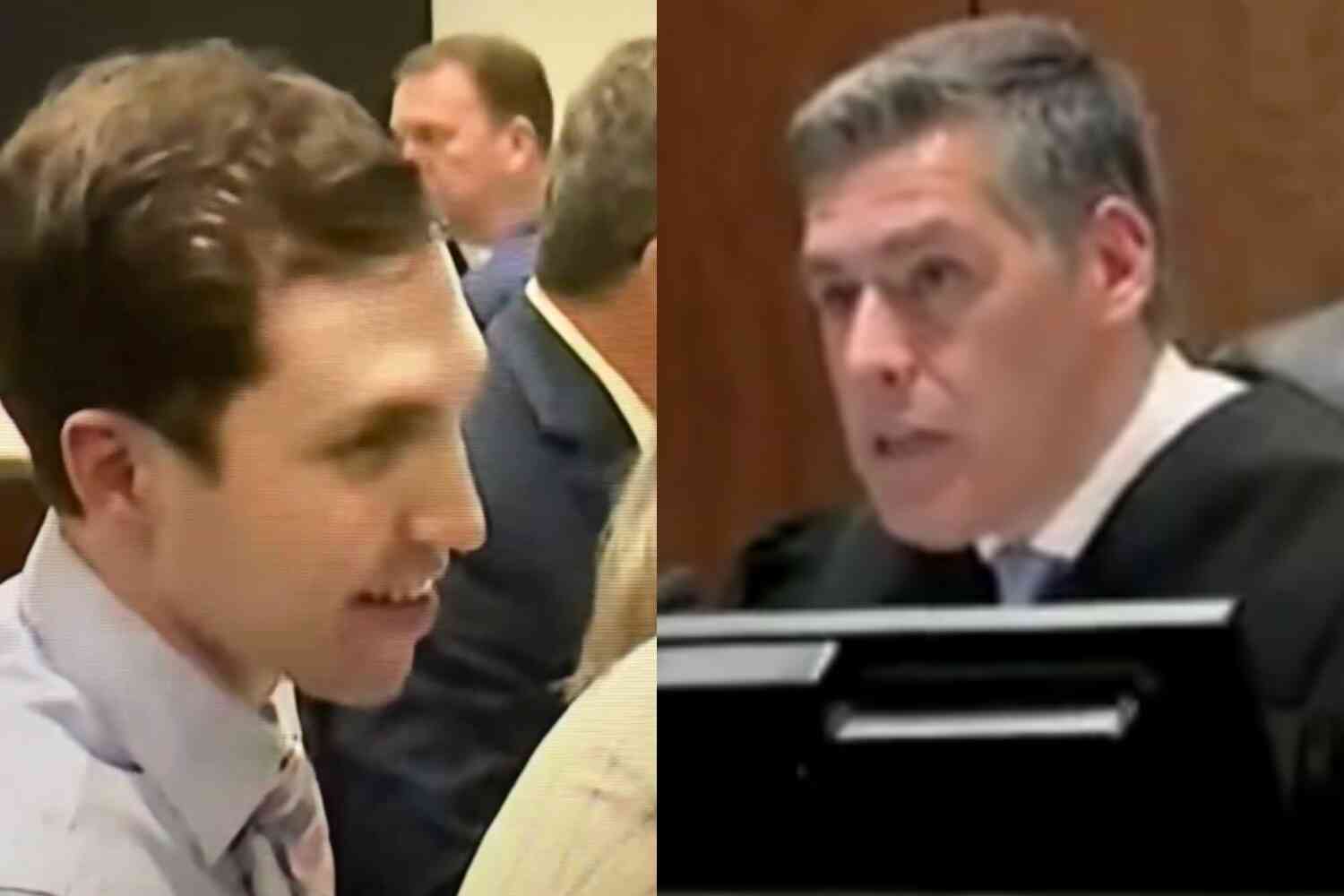I know I am likely beating my head against the wall, but as I observe and engage our fractured and increasingly contemptuous public dialogue, I just can't stop repeating this three-word command: define your terms.
So much debate, so much discussion, so many contemporary disputes are waged dishonestly – one side raging against a philosophy they define one way, and the other side defending the same philosophy that they define another way. And as a consequence, it seems all we're accomplishing these days is division, anger, and polarizing resentment between one another across a number of disciplines.
Just a couple days after the horrific Oxford High School shooting in Michigan, U.S. Representative Thomas Massie drew criticism for posting a Christmas photo of his family posed in front of a tree, all displaying their personal arsenal of guns. While I think anyone with a fair mind could reasonably question Massie's timing, and while there's certainly an element of tone-deafness given the details that have emerged about the Oxford incident, that didn't stop some like progressive Christian professor Andrew Whitehead from totally jumping the shark:
The tweeted photo may be many things, but what does it have to do with race or Christian nationalism? You and I may not know, but ask Whitehead and he could undoubtedly tell you. How? By defining the terms in a way that are convenient for his argument. His definition probably suits fellow progressive religious activists like Timothy Isaiah Cho, who gave his own hot take on it and another cultural buzzword recently:
But what is this "Christian nationalism" that these guys so aggressively oppose? When Joe Biden cites Christian morality as justification for his healthcare plans or infrastructure bill, is that Christian nationalism? When Nancy Pelosi cites the moral law of God as compelling us to act legislatively on issues like climate change, is that it? Or is it when former President Trump bizarrely holds up the Bible in front of an angry mob? It seems that even Cho's followers weren't sure, as the comment thread revealed:
Do you see the problem? Person A may defend "Christian nationalism" believing that it simply means loving your country. But Person B, who equates Christian nationalism with the January 6th riot, is appalled to hear Person A defend it. They're on two completely different wavelengths. By Person A's definition, Person B would likely agree with them, and vice versa.
Now, I'm not suggesting there won't be differences between us that persist, or that we're all actually on the same page. We're not. But I am suggesting that our current flippancy and irresponsibility with our terms is exacerbating our divide and making things seems far more polarized, far more hostile, far more dangerous than they need to be. We are so adamant to build ourselves up by tearing other people down (isn't that the entire point of social media?), we don't even realize when our arguments become self-defeating. For instance, railing against his understanding of "Christian nationalism," notice how this progressive Christian inadvertently undermines the entire premise of so much of the social justice/critical race theory he advocates:
So, group identification is evil and anti-Christian when it is considered part of the definition of "Christian nationalism." But that same concept is embraced and promoted when it comes to arguing against colorblindness and in favor of attaining power and status for a group like BLM? This is a consequence of the problem I'm talking about – and notice how it freely spills over into the public debate over critical race theory.
To hear some tell it, CRT is just teaching about the civil rights movement, while others define it as a combination of the factually-deficient 1619 Project, Ibram Kendi's neo-racism, and efforts to teach school children to hate white skin. Arguing over "CRT" then will be fruitless (and dangerous) until and unless we define what it is.
Ditto that on the topic of white supremacy. Are we condemning the KKK and neo-Nazi ideology, or are we saying that voting Republican, proctoring the SAT, and disagreeing with racial segregation on college campuses all constitute white supremacy? The debate is pointless if we don't first establish that.
Sadly, Christianity is rife with the same annoying reality. Consider this exchange over the suddenly-trendy topic of evangelical "deconstruction:"
Definitions matter, and I would submit even more so when members of the body of Christ are engaging in a public dispute.
Look, I know it's not as much fun. I know it's not as easy to self-aggrandize. I know that by doing it, we're deprived of the opportunity to comfortably place our enemies in a box that we can categorically label as evil and thus mockingly reject.
But if we truly want to find reconciliation, if we truly want to wrest control of the public conversation away from the extremes, we simply must stop talking past one another.
Disclaimer: The opinions expressed in this article are those of the author and do not necessarily reflect the opinions of Not the Bee or any of its affiliates.









